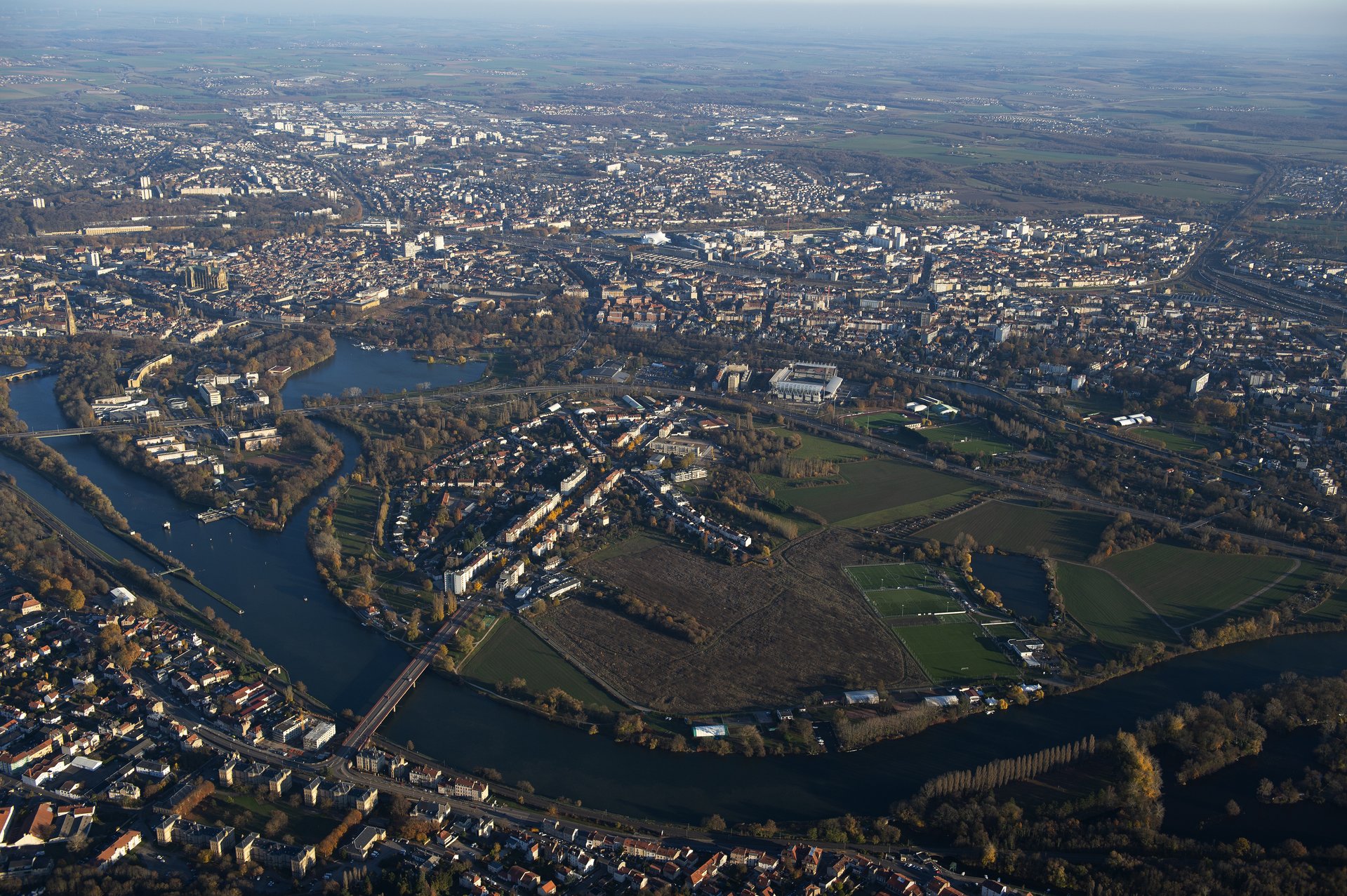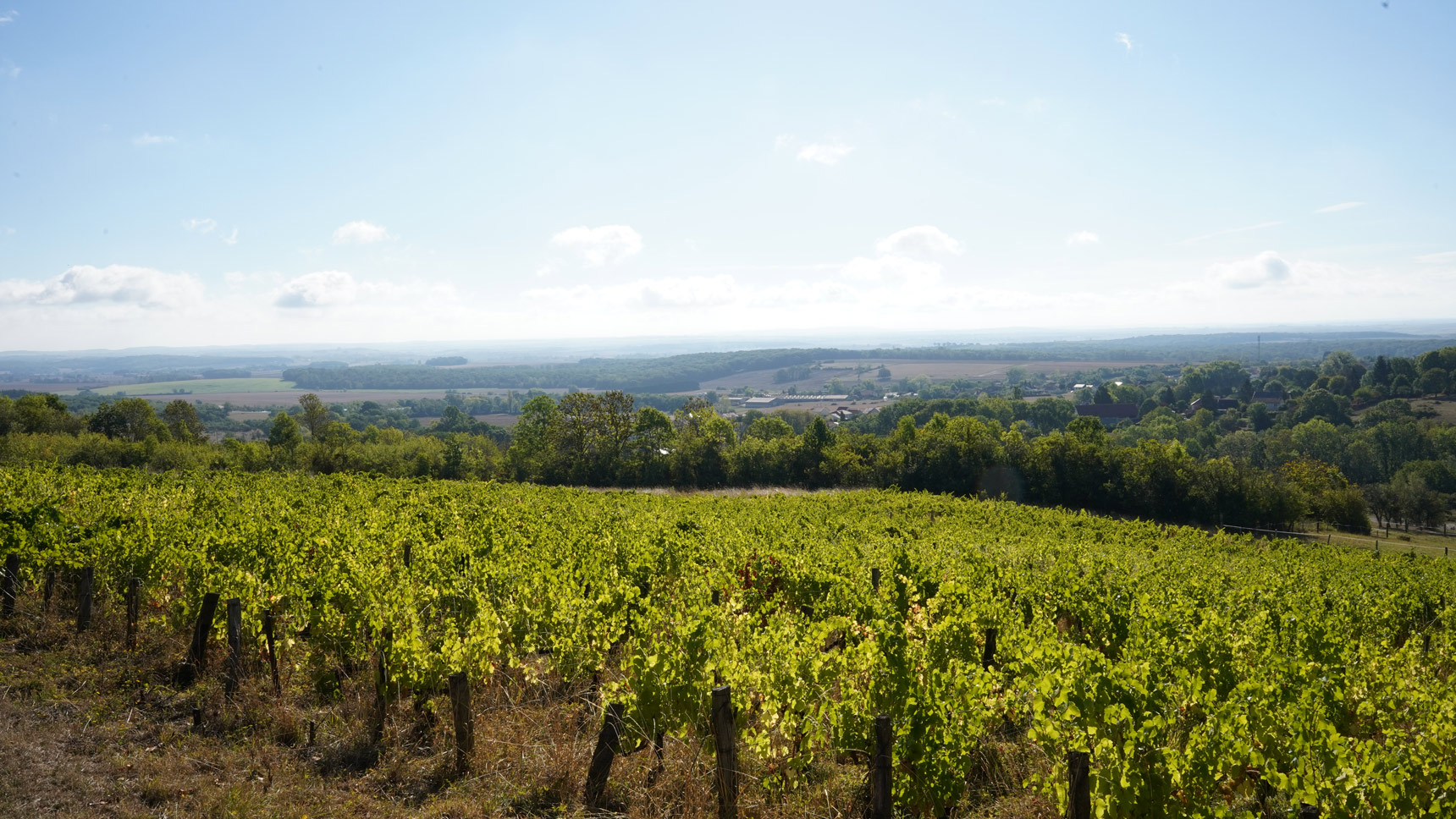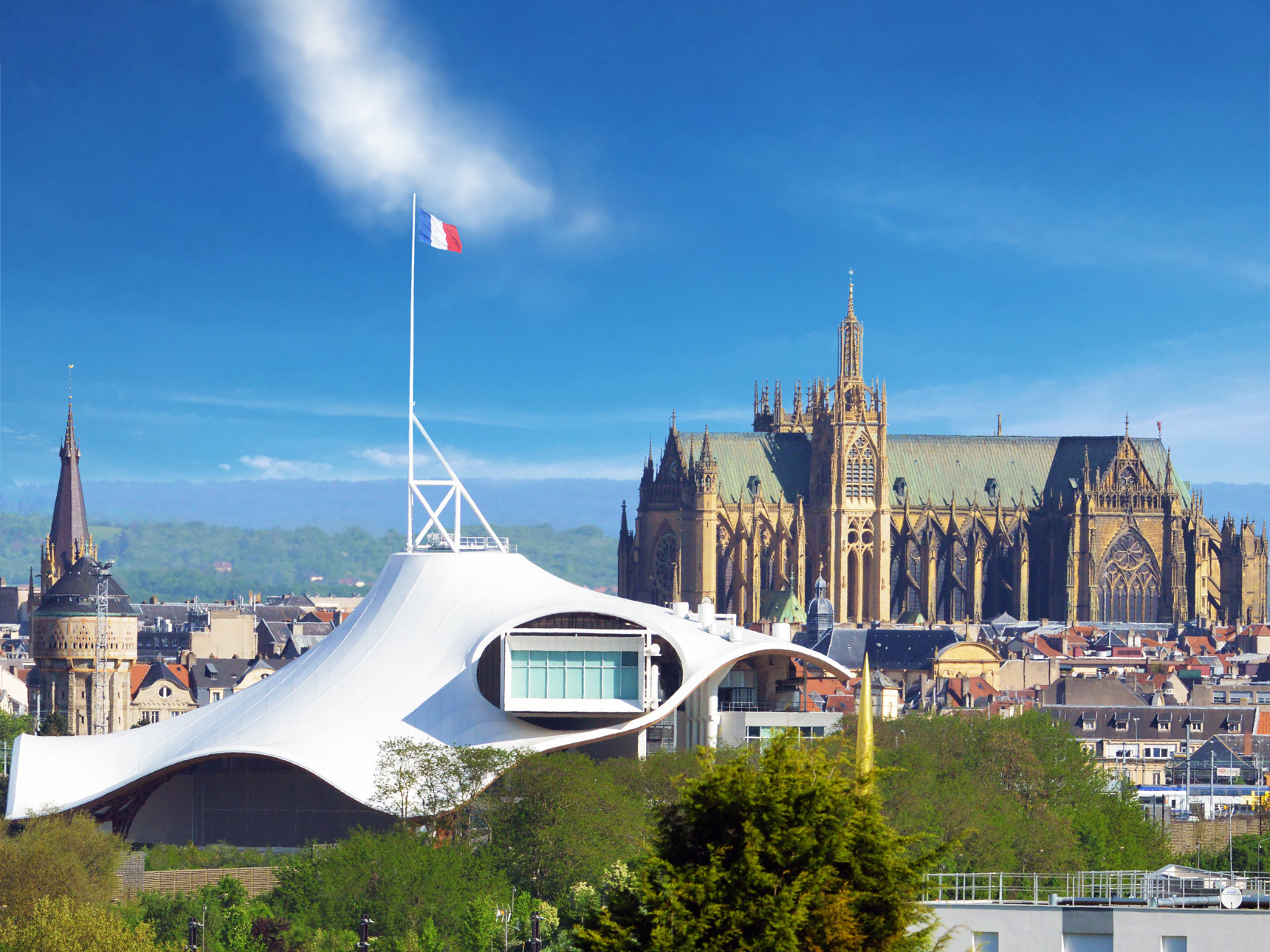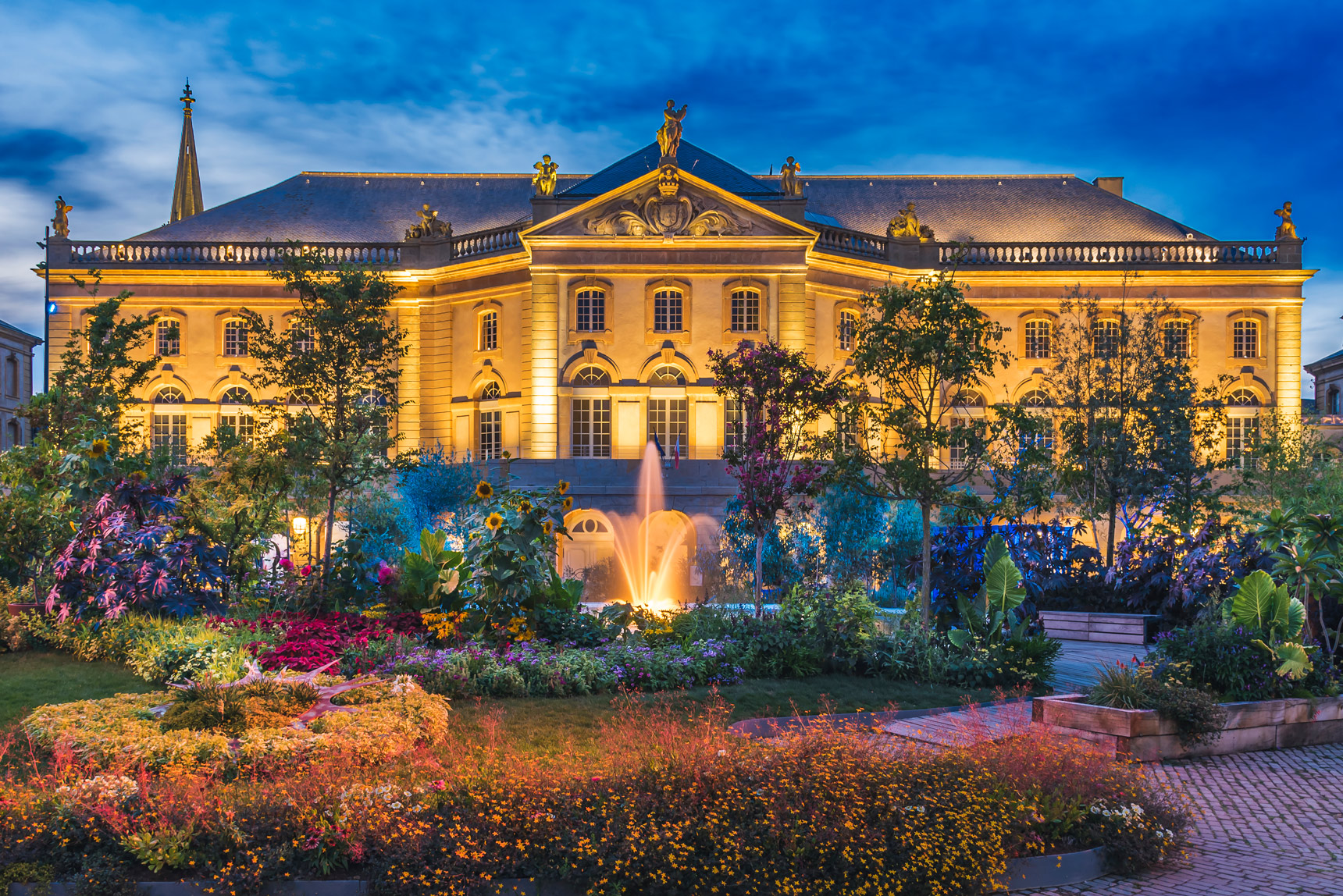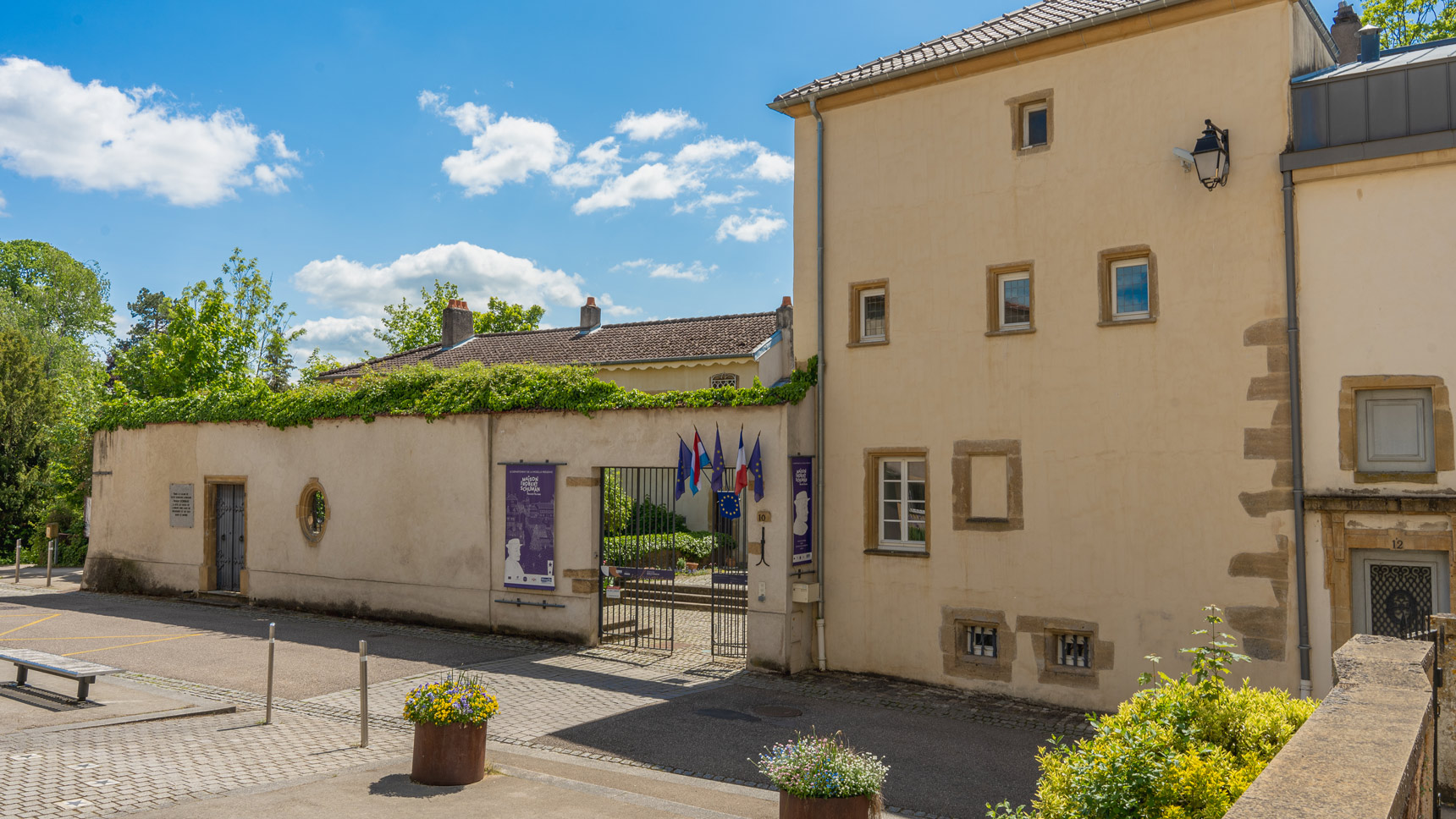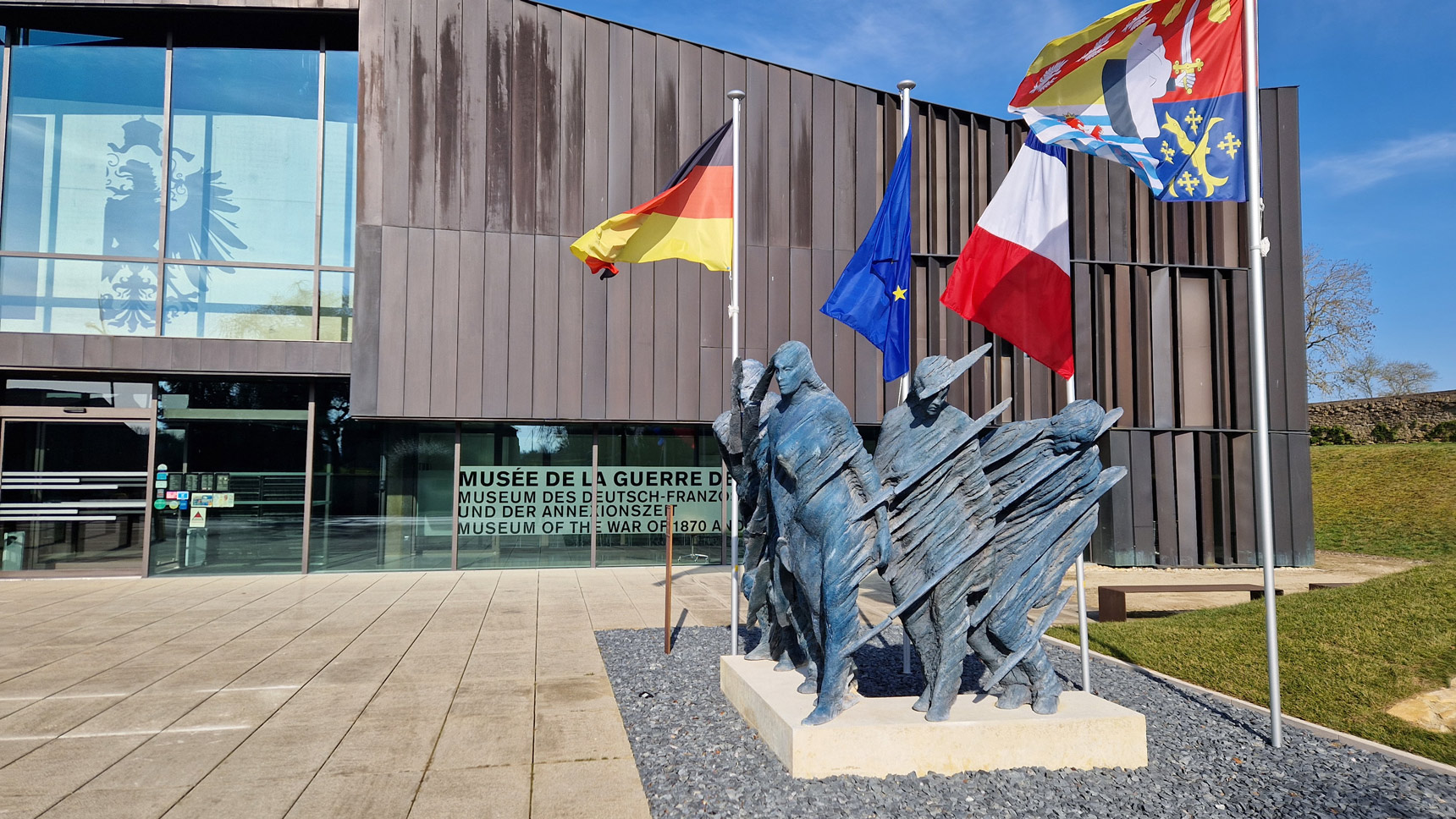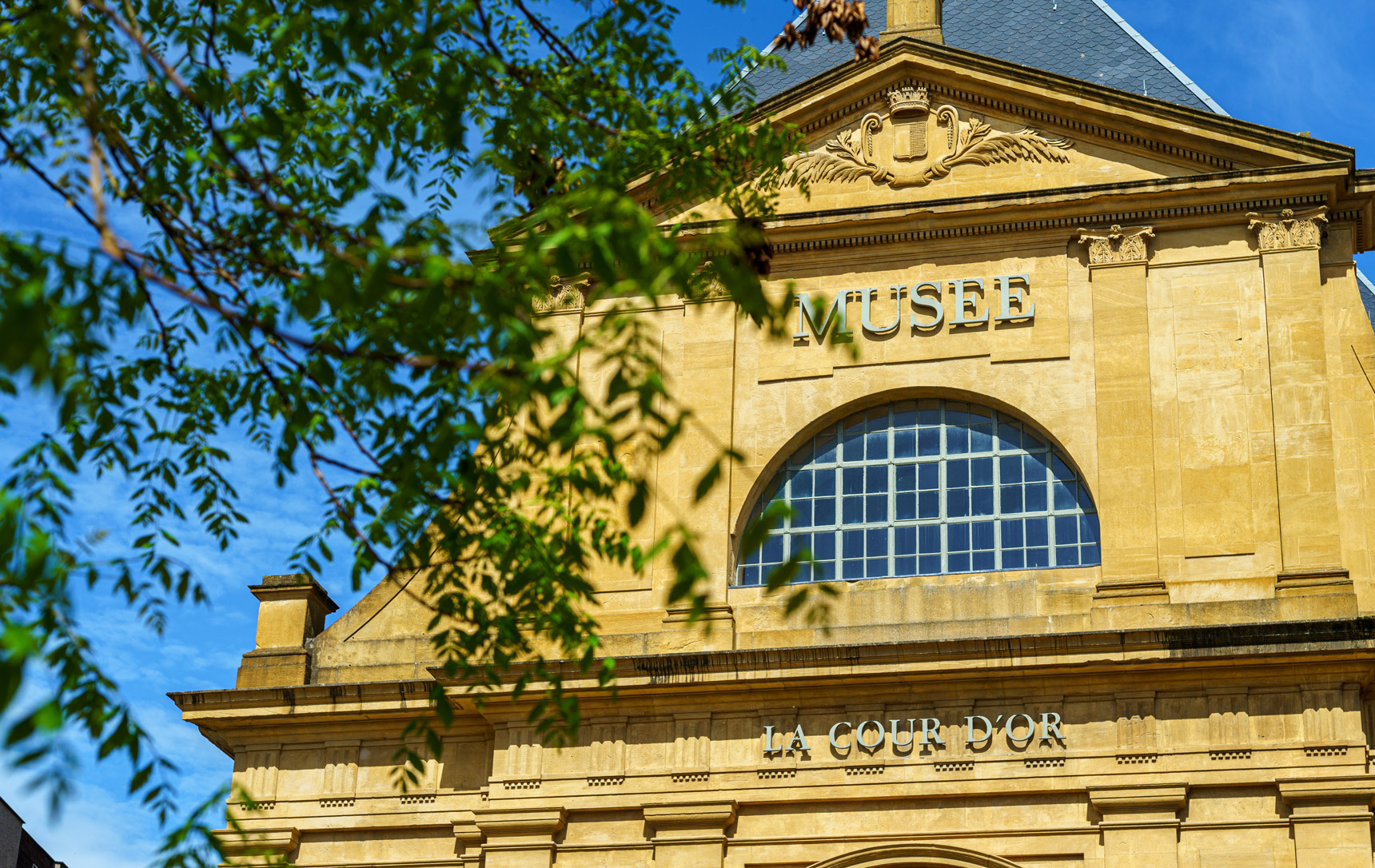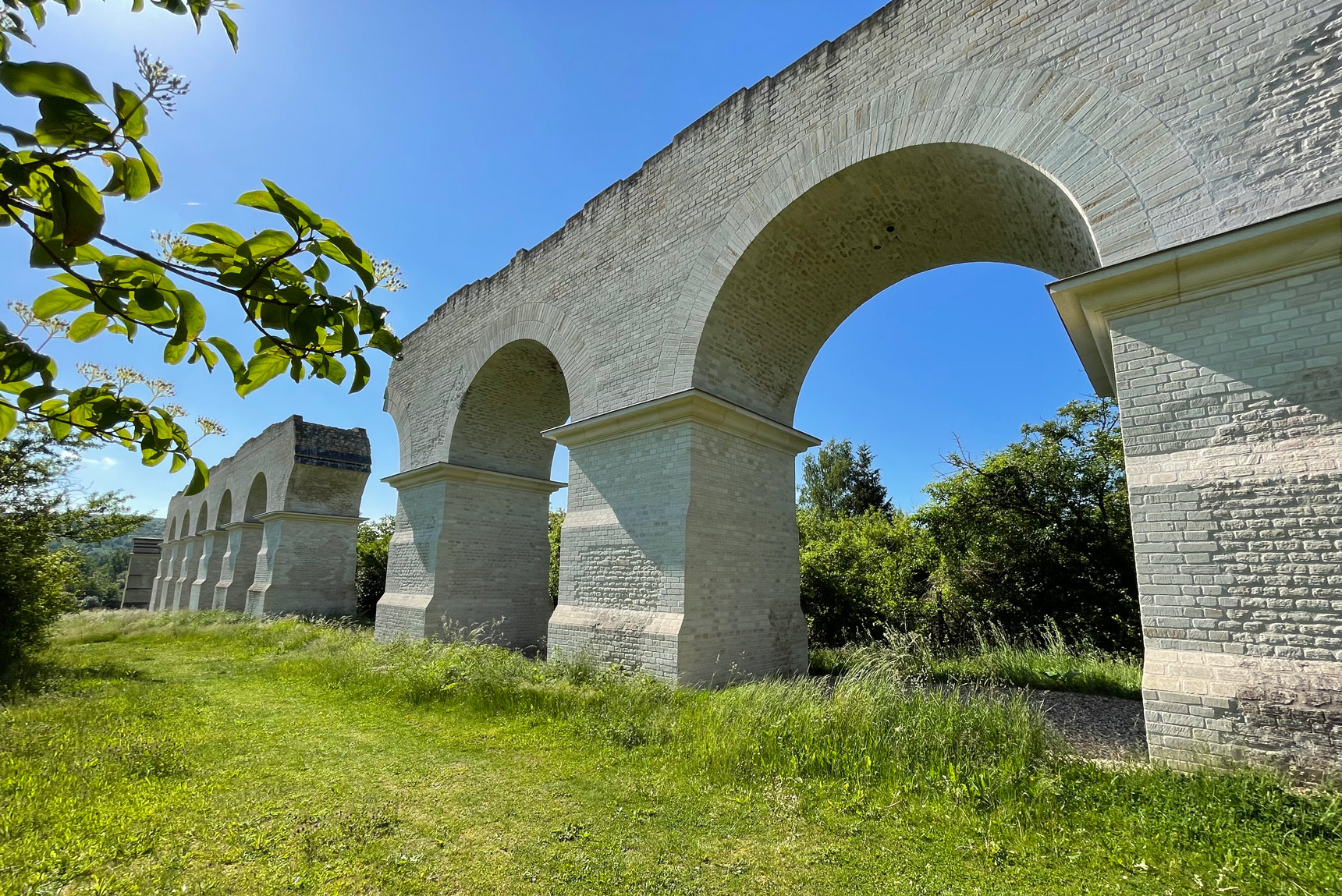For its economic DNA
The Metz Eurometropole boasts a strong entrepreneurial culture that is constantly renewed by economic players and investors who are well aware of the region's assets. The residential and tourist dimensions also generate strong economic activity in a variety of sectors: production of goods and services, construction, trade... in a strategic geographic area that is particularly welcoming to talent, encouraging exchanges and travel.
A privileged location
Located at the heart of the Greater Region (Saar-Lor-Lux), the Metz Eurometropolis has capitalized on the advantages of its cross-border position, which is naturally conducive to international trade, and its ideal accessibility by any means of transport.
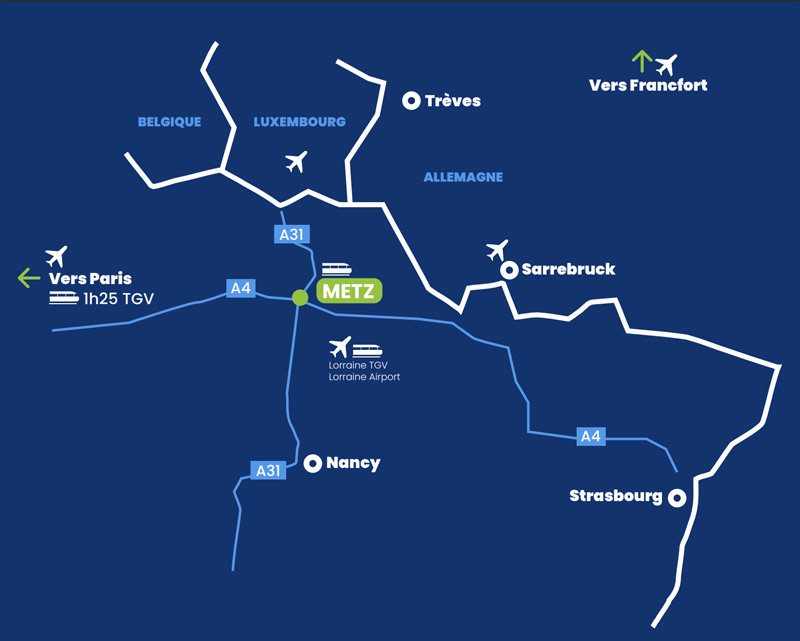
Partners and support for creation, installation, innovation and transformation
Entrepreneurs benefit from ongoing support for the creation and development of their businesses. In 2022, the Metz Eurometropole was awarded the Pôle de Coopération pour Entreprendre (PCE) label by the Grand Est Region, and offers a Maison de l'Innovation, de l'Entrepreneuriat, des Écoles et de l'Université.
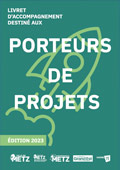 See the creation support booklet (Metz Eurometropole)
See the creation support booklet (Metz Eurometropole)
A territory for experimentation
The Metz Eurometropole has always reinvented itself. With the visionary support of Jean-Marie Rausch, Mayor of Metz (1971 - 2008), who created the Technopôle in 1984, bringing together technology, training and research to renew the economic and industrial fabric.
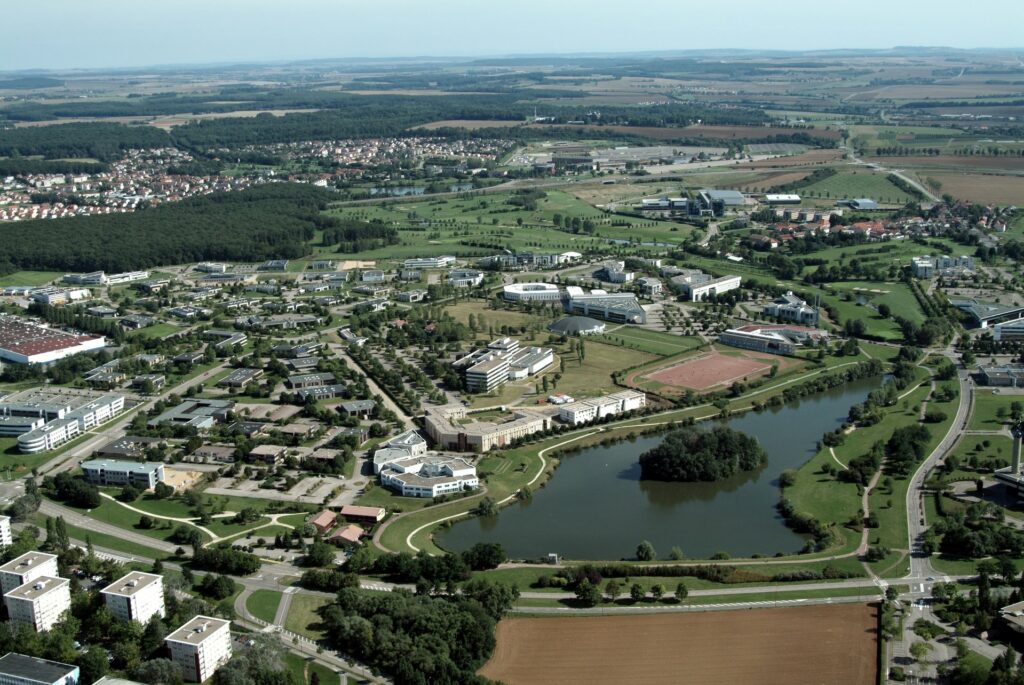 Technopôle de Metz © Sutter Event - Drone Production
Technopôle de Metz © Sutter Event - Drone Production
An economic culture
At the heart of a region with a rich industrial past, the Metz Eurometropole is an area undergoing constant change, benefiting from a culture of entrepreneurship and innovation that has led to the successful diversification of its business sectors.
A dynamic, responsive labor pool
The Eurometropole has a well-developed and structured territory, in constant interaction with all the EPCIs of Northern Lorraine, a real crossroads of skills that benefits local economic development, supported by a skilled and trained workforce.
An economic offering to attract new businesses
Since 2018, Metz Eurometropole has been responsible for the planning, development, maintenance and management of 27 economic activity zones across the territory.
For its training and research offer
The Metz Eurometropolis can draw on a cluster of academic and research excellence which, thanks to its partnerships with the business world and its missions applied to advanced technologies, makes training and R&D the cornerstone of the region's economic development.
2 universities and 6 engineering schools
The region boasts an exceptional range of higher education establishments, including Georgia Tech Europe, Arts et Métiers, CentraleSupelec, Université de Lorraine/ENIM, ESITC, I2L and ESAL. Led by public and private partners in industry and logistics, they all actively contribute to regional economic development and meet the challenges of the 4.0 society.
Technology transfer centers, research institutes and competitiveness clusters
The Metz Eurometropole has made innovation the key driver of its economic development. New synergies, encounters between researchers and industrialists, academics and business leaders, and companies in the same sector, are all contributing to the development of an unprecedented level of competitiveness in the region's history, with the Institut de la Photonique, CEA Tech, IRT M2P, Institut Lafayette, MATERALIA and others...
For its quality of life and surroundings
The Eurometropole is a balanced territory where the components of daily life and quality of life are intimately linked, making it a destination where life is good.


A preserved natural environment
A cradle of urban ecology, the Metz Eurometropole is a green lung, with its lake in the heart of the city center, its wine-growing hillsides, its parks, gardens and numerous natural areas such as Mont Saint-Quentin, the Jardins Fruitiers de Laquenexy and the botanical garden... "La Voie Bleue" for cyclists links the Luxembourg border with Lyon. For cyclists, the Voie Bleue links the Luxembourg border with Lyon. Whether by boat, on foot or by bike, nature is always present.
A strong cultural identity
With 3,000 years of history, the Metz Eurometropole and its 46 communes offer a rich and varied journey that combines temporary exhibitions, modern and contemporary art, historical heritage, fine art collections... Through its sites and museums, the Metz Eurometropole promotes History, Heritage and the Arts within a borderless territory with leading historical and cultural institutions: Center Pompidou-Metz, Musée de la Cour d'Or - Eurométropole de Metz, Cité musicale, Opéra-théâtre -Eurométropole de Metz, Maison de Robert Schuman, Musée de la Guerre 1870 et de l'Annexion...
A land of sports and leisure
Facilities to meet the needs of Metropolitans (swimming pools, skating rink, stadiums and gymnasiums, fencing hall, athletics ring, outdoor and indoor amusement parks, cinemas, bowling alleys, water sports and river activities, etc.) and top-level sports that make the region famous in France and abroad (FC Metz, Metz Handball, Les Canonniers, Metz Rugby Club, etc.).
Healthcare services
Healthcare needs take into account the diversity of populations (students, senior citizens, women, etc.) and pathologies, based on a territorial network where health centers, private and public hospitals, military facilities, EPHADs, analysis laboratories and healthcare professionals all offer appropriate solutions.
A peri-urban area with a diversified housing offer
With its 46 communes, the Metz Eurometropole fosters the link between attractiveness and proximity. To guarantee the quality of living spaces, the supply of housing, green spaces, facilities and activities is aligned with housing, social cohesion, solidarity and mobility policies. Collective housing, single-family homes, new eco-districts, student residences and aparthotels, temporary accommodation... This varied offer enables families, first-time buyers, students, young workers, seasonal workers and senior citizens to build their professional and personal lives here.
A region with a wide range of educational and professional opportunities for all levels (from nursery school to higher education)
New residents can easily find out which schools are available for their children in the vicinity from their local town hall. When it comes to higher education, the Metz Eurometropole offers a wide choice of disciplines, courses, accommodation and support.
Promoting multimodal mobility
The metropolitan area has an innovative mixed transport policy that encourages sustainable travel. Public transport (Met') and its Metz'O river shuttle, cycle paths, public charging stations for electric cars (EMM, UEM), park-and-ride and car-sharing facilities, TER, TGV and bus stations provide a dense network and mobility solutions for users visiting, studying, working and living in the metropolis, or commuting to destinations outside (Paris, Luxembourg).




